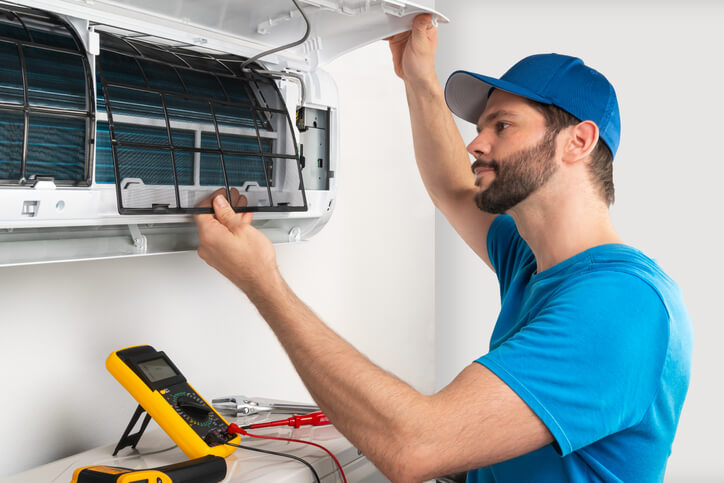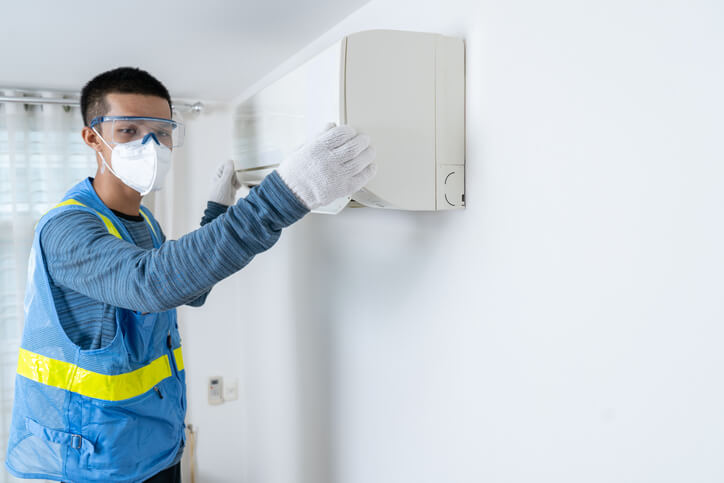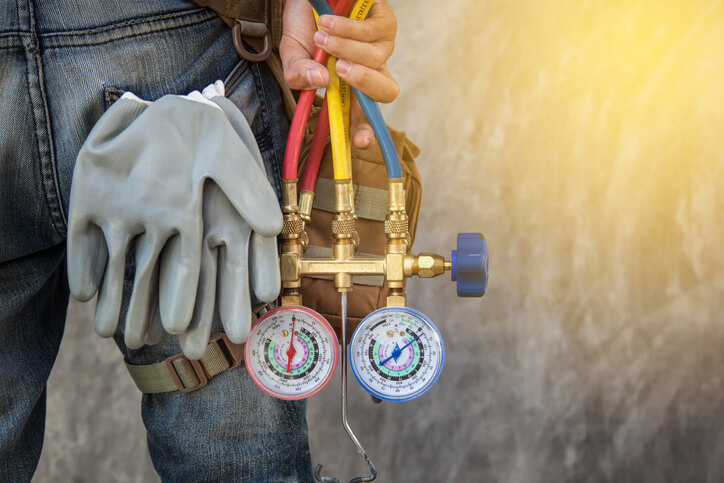
Heating, ventilation, and air conditioning (HVAC) systems are essential for maintaining comfortable indoor environments, but they can pose potential hazards if not handled properly. Proper training is crucial for ensuring safety when working with HVAC systems.
However, even after completing HVAC training, professionals can make safety mistakes that jeopardize their well-being and the well-being of those around them. In this blog post, we will discuss three common safety mistakes to avoid after HVAC training.
1. Neglecting Personal Protective Equipment (PPE)
One of the most fundamental safety mistakes HVAC professionals make is neglecting to wear appropriate personal protective equipment. PPE is essential to safeguard against potential hazards, such as electrical shock, refrigerant exposure, or cuts from sharp materials. After completing HVAC training, it’s crucial to remember that PPE is not optional but required for every job.
As our HVAC technician courses specify, the specific PPE needed can vary depending on the task. Still, it often includes safety glasses, gloves, steel-toed boots, and insulated electrical gloves for electrical work. Ignoring these safety measures can result in injuries that could have been easily prevented.

Additionally, HVAC technicians must be vigilant about the maintenance of their PPE. Regularly inspect and replace any damaged or worn items to ensure they remain effective. A small investment in PPE can prevent severe injuries and keep HVAC professionals safe on the job.
2. Skipping Safety Checks and Procedures
HVAC systems are complex, and the installation, maintenance, and repair processes involve various safety checks and procedures that should be followed rigorously. After completing HVAC technician training, technicians may become complacent or skip certain steps, thinking they can rely on their experience.
However, neglecting safety checks and procedures can lead to catastrophic consequences. For instance, failing to secure and test gas lines properly can result in gas leaks and potential explosions. Skipping the inspection of electrical connections can lead to electrocution or fires. Ignoring safety checks is not only dangerous but can also be costly in terms of property damage and potential lawsuits.
To avoid this safety mistake, HVAC professionals should always follow safety protocols and checklists provided by their employers or industry standards. These procedures are in place for a reason and are designed to protect technicians, clients, and property.
3. HVAC Technician Training Promotes Ensuring Adequate Equipment Inventory
As unlikely as this might seem, HVAC technicians can fail to maintain an adequate inventory of their tools and equipment. A well-prepared HVAC technician should have a comprehensive set of tools and materials to perform their job efficiently and safely. This aspect must be revised to avoid unnecessary delays, substandard work, and potentially hazardous situations.

Some common inventory-related mistakes to avoid include:
- Lack of essential tools: Forgetting or not carrying crucial tools leads to improvisation, which can be unsafe. Always ensure you have the necessary tools, such as wrenches, screwdrivers, multimeters, and pipe cutters.
- Insufficient safety equipment: Many HVAC tasks involve working with electricity, refrigerants, or elevated positions. Neglecting safety equipment like gloves, safety glasses, fall protection gear, and arc flash suits can result in severe accidents.
- Disorganized work vehicle: Maintaining a well-organized work vehicle is vital for efficiency and safety. A cluttered and disorganized van can lead to accidents when tools or equipment are not stored securely.
Are you interested in our HVAC technician diploma?
Contact NATS for more information.





